Joe Raedle / Getty Images Yamileth Centeno and her teenage daughter used all their strength to hold a mattress against a brok...
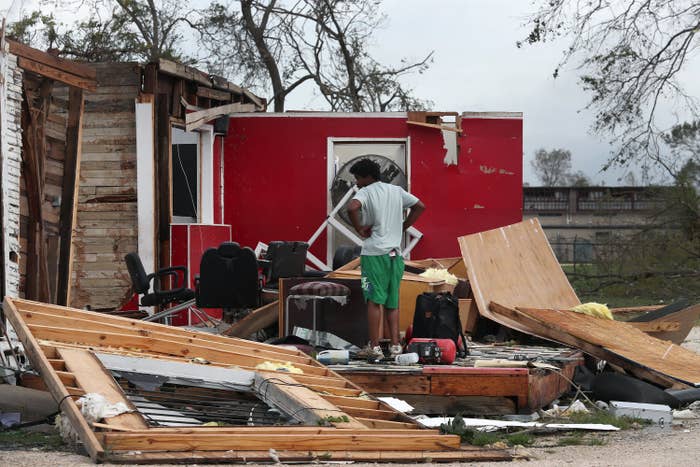
Joe Raedle / Getty Images
Yamileth Centeno and her teenage daughter used all their strength to hold a mattress against a broken window, trying desperately to keep debris and more water from entering the bedroom as part of their house collapsed around them under assault from Hurricane Laura’s howling winds.
The strongest hurricane to make landfall in Louisiana in 160 years blasted through the state’s southwest region last week, its 150-mile-an-hour winds destroying businesses, snapping telephone poles in half, and ripping the roofs off houses.
Officials said the death toll — which now stands at 17 in Louisiana — was lower than they feared, but the hurricane’s impact on people’s livelihoods was “catastrophic.” This is especially true for many of the area’s Black and Latino residents. They were already struggling with an economy battered by the coronavirus pandemic and with higher death and infection rates from COVID-19 than white people. Now comes yet another blow, at a time when many say they are least able to absorb it.
Many areas that sustained heavy damage from Hurricane Laura, such as the city of Leesville, Allen Parish, and Jefferson Davis Parish, already had poverty rates well above the national average. In Lake Charles, where Centeno and her daughter live, the poverty rate was 23% in 2018 — before the pandemic made things worse.
Centeno, who identifies as Afro Latino, had already lost her job as an electrician at a refinery in town during the pandemic downturn and had been living on her $222 unemployment paycheck. It wasn’t enough to get by, and she had missed a rental payment.
“I’m at zero,” she said.
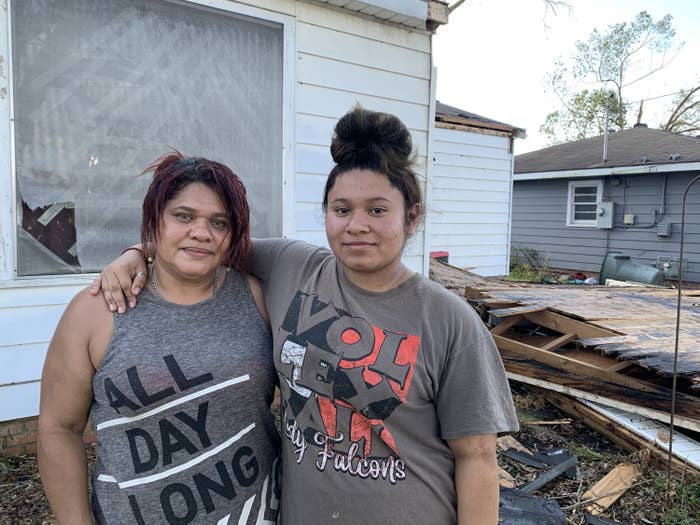
Adolfo Flores for BuzzFeed News
Yamileth Centeno, 52, and her daughter, Yaheily Centeno, 16, stand outside their home.
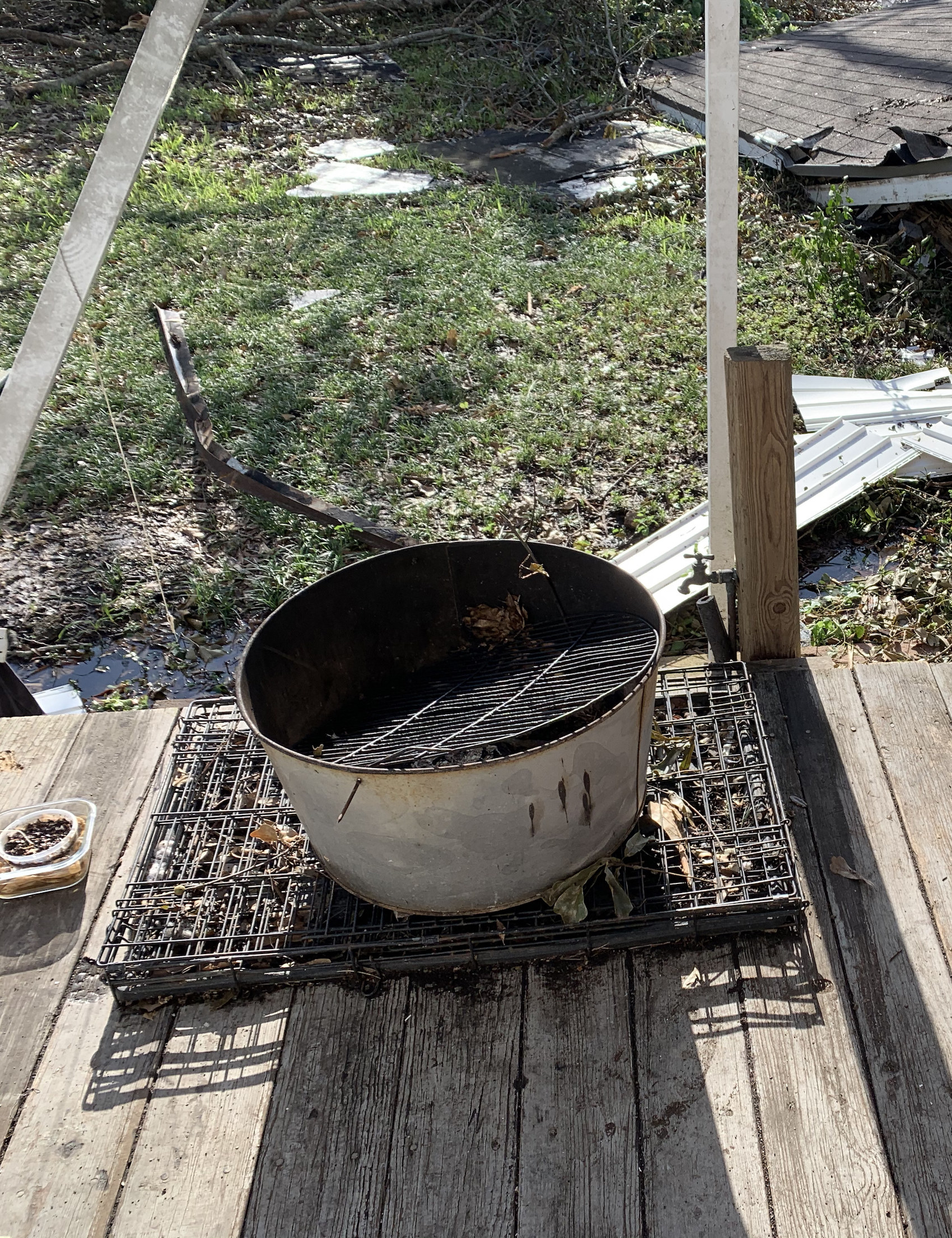
Adolfo Flores for BuzzFeed News
Centeno and her daughter used wood from fallen branches to cook on this outdoor grill.
She called her father and an older daughter to ask if they could drive and pick up her family after the hurricane, but neither could. Instead, she and her daughter used wood from fallen branches to cook as much food from their refrigerator as possible on an outdoor grill before it spoiled. At night, without electricity for air conditioning and with the dark, hot night closing around them, Centeno waved a fan over her daughter until she fell asleep.
“We have nobody. I have her and she got me,” Centeno said.
About 15 minutes north, Sabina Garcia, 55, was standing in her front yard Friday evening, wearing gloves, denim shorts, and sandals and trying to extract tree branches from the roof and sides of her home as quickly as she could before the sun set and plunged the neighborhood into total darkness.
Unlike Centeno, Garcia and her family had evacuated. When she came back Friday, she saw that a tall tree that once stood in front of her family’s pink three-bedroom home now lay on top of it. Garcia said she felt grateful that it had only mauled the living room and porch. Lacking insurance to cover damages, she and her cousins spent Friday chopping up the tree themselves, moving across the roof branch by branch.
She shared the single-story house with her husband, three daughters, and two grandchildren. Garcia works in the cleaning department at the Golden Nugget hotel and casino in Lake Charles. Garcia, who became the family’s breadwinner after her husband became partially paralyzed from diabetes, was happy to be back at work in recent months. She’d been unemployed for weeks after the casino had closed its doors in March when the state issued a shelter-in-place order the pandemic. Now, Garcia was uncertain whether she still had a job: She said she figured it could be weeks before electricity was restored to the casino and it could reopen.
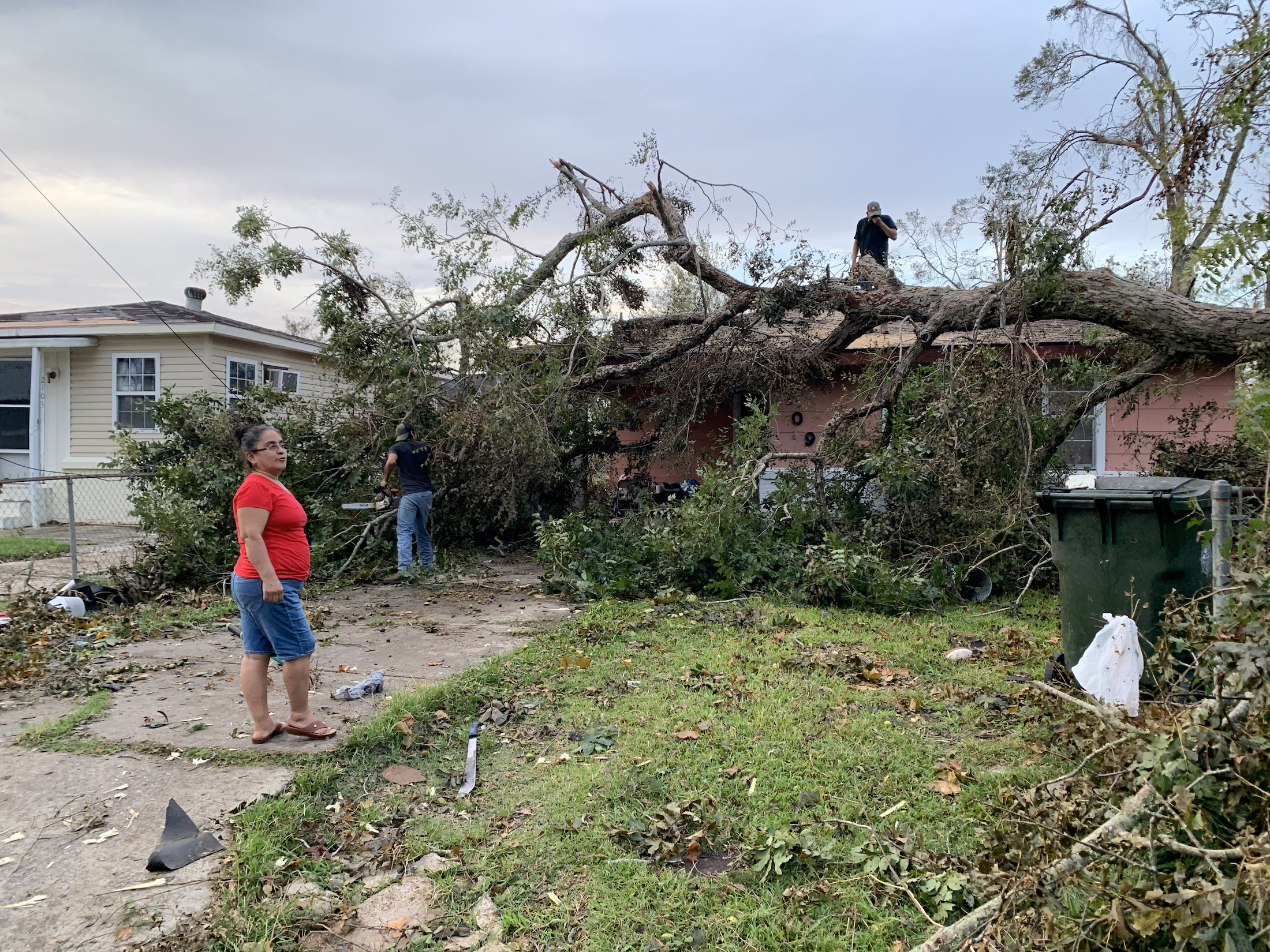
Adolfo Flores for BuzzFeed News
Sabina Garcia, 55, stands outside her home, which was damaged by a tree that fell in the storm.
“I am a little worried, but I trust in God,” Garcia said. “The important thing is we’re alive.”
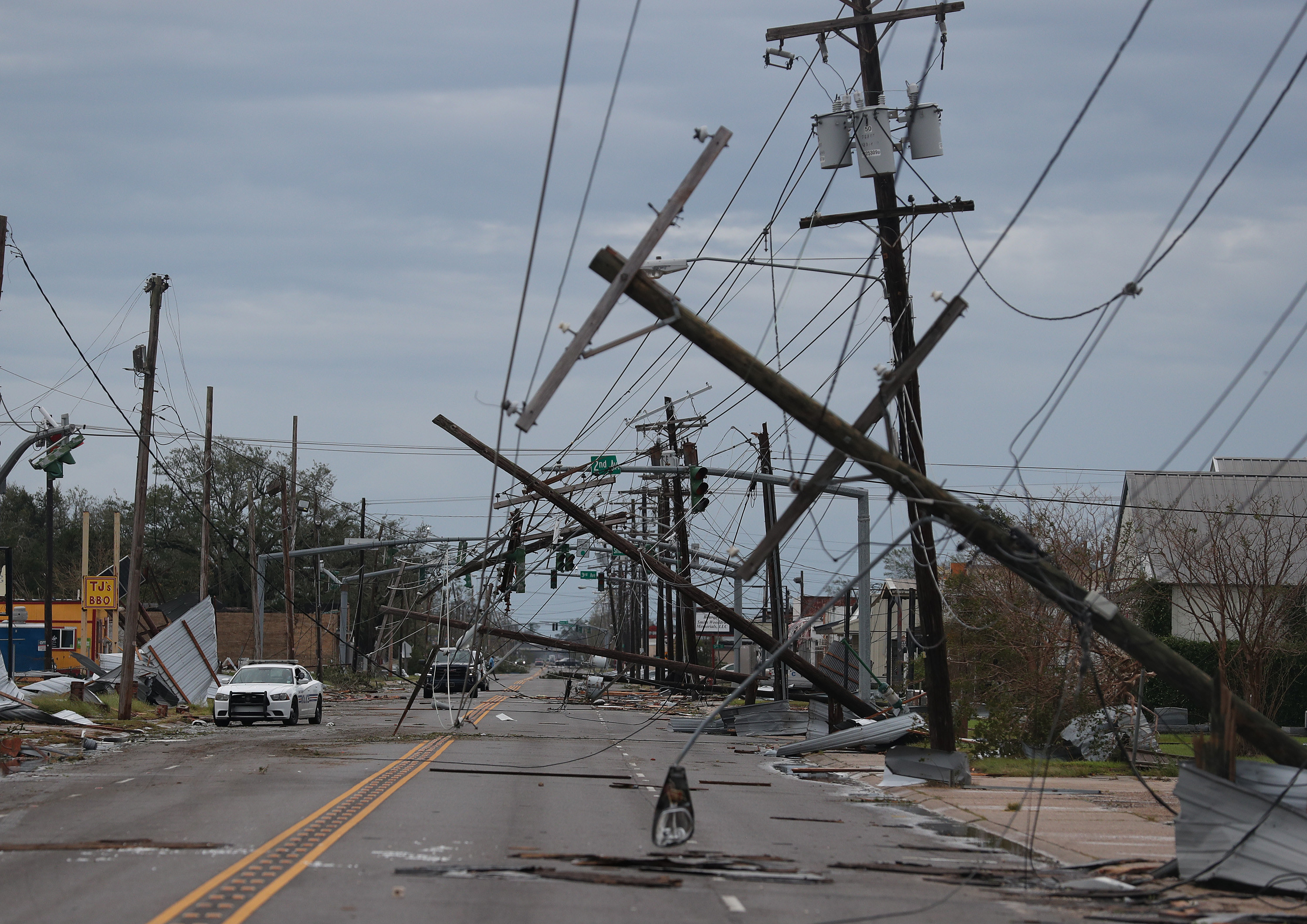
Joe Raedle / Getty Images
The following day, about two blocks away, Ramona Talley sat in a black armchair inside her brother’s living room breathing with the help of an oxygen tank.
The cheery 62-year-old suffers from chronic obstructive pulmonary disease; even a short walk to the car leaves her struggling to breathe. Talley was afraid to evacuate — fearful, her son said, that she would be at higher risk of contracting COVID-19 in a crowded shelter or a hotel.
Instead, Ramona’s brother, Gary Citizen, 64, picked her up from her apartment before the hurricane struck and brought her to his house. He said he never imagined the hurricane would be as bad as it turned out to be. The family spent the night huddled together in the living room of Citizen’s home on the north side of Lake Charles. Violent winds shook the house to its foundation and it felt like the windows were on the verge of all shattering at once.
“The wind was so loud, it was roaring like a freight train,” Citizen said.
When the storm passed, part of their roof had been torn off, a bathroom and bedroom exposed to the elements and damaged by water. It turned out the family would have to evacuate anyway because their house was uninhabitable and they had no water or electricity.
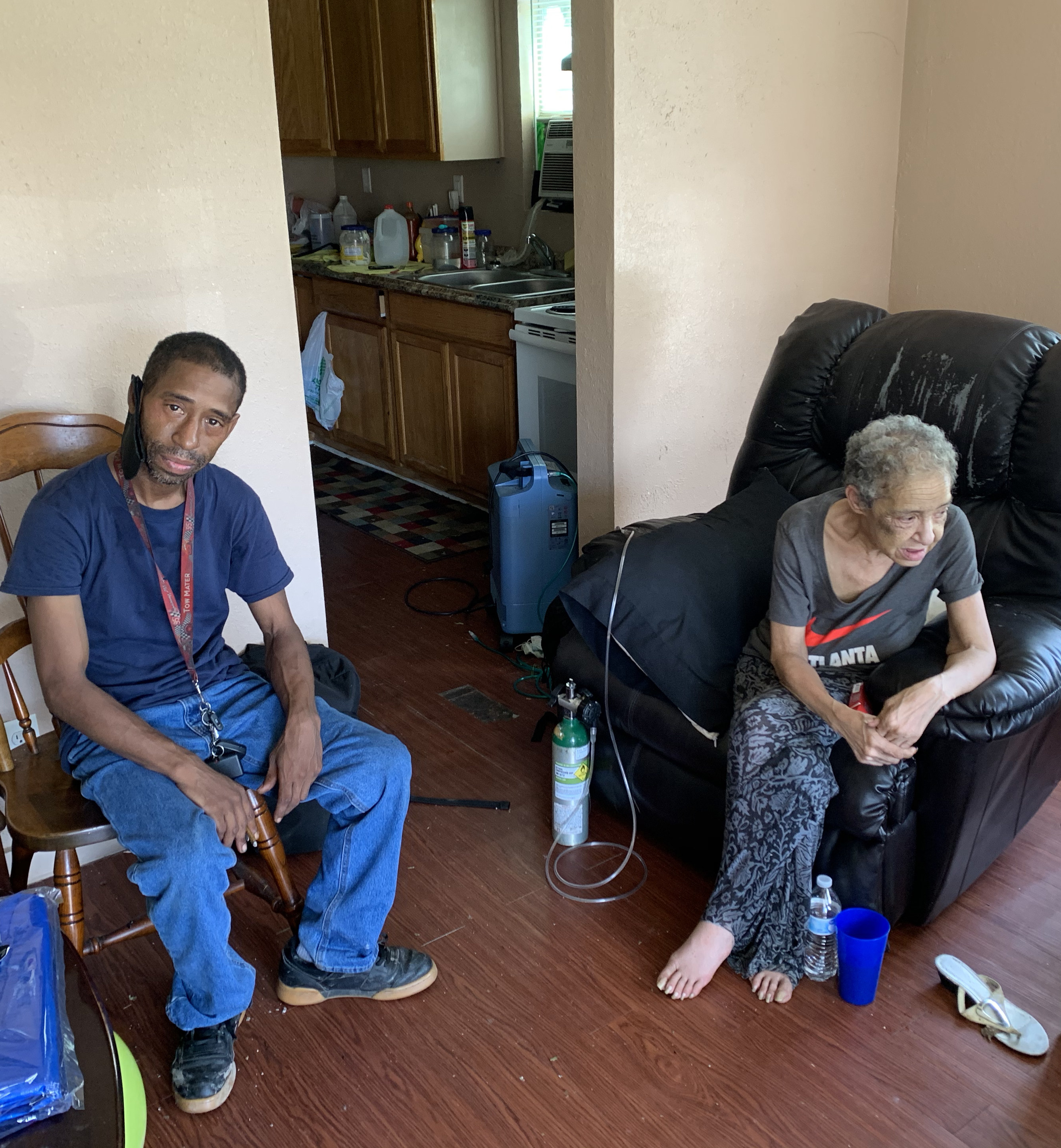
Adolfo Flores for BuzzFeed News
Anthony Talley and his mother, Ramona Talley, stayed in Lake Charles during the hurricane because she suffers from chronic obstructive pulmonary disease and was worried she could contract COVID-19 if she were around others.
"They're going to go south first, not the north side," Citizen predicted of any government officials that might come bearing aid. "I don't know why."
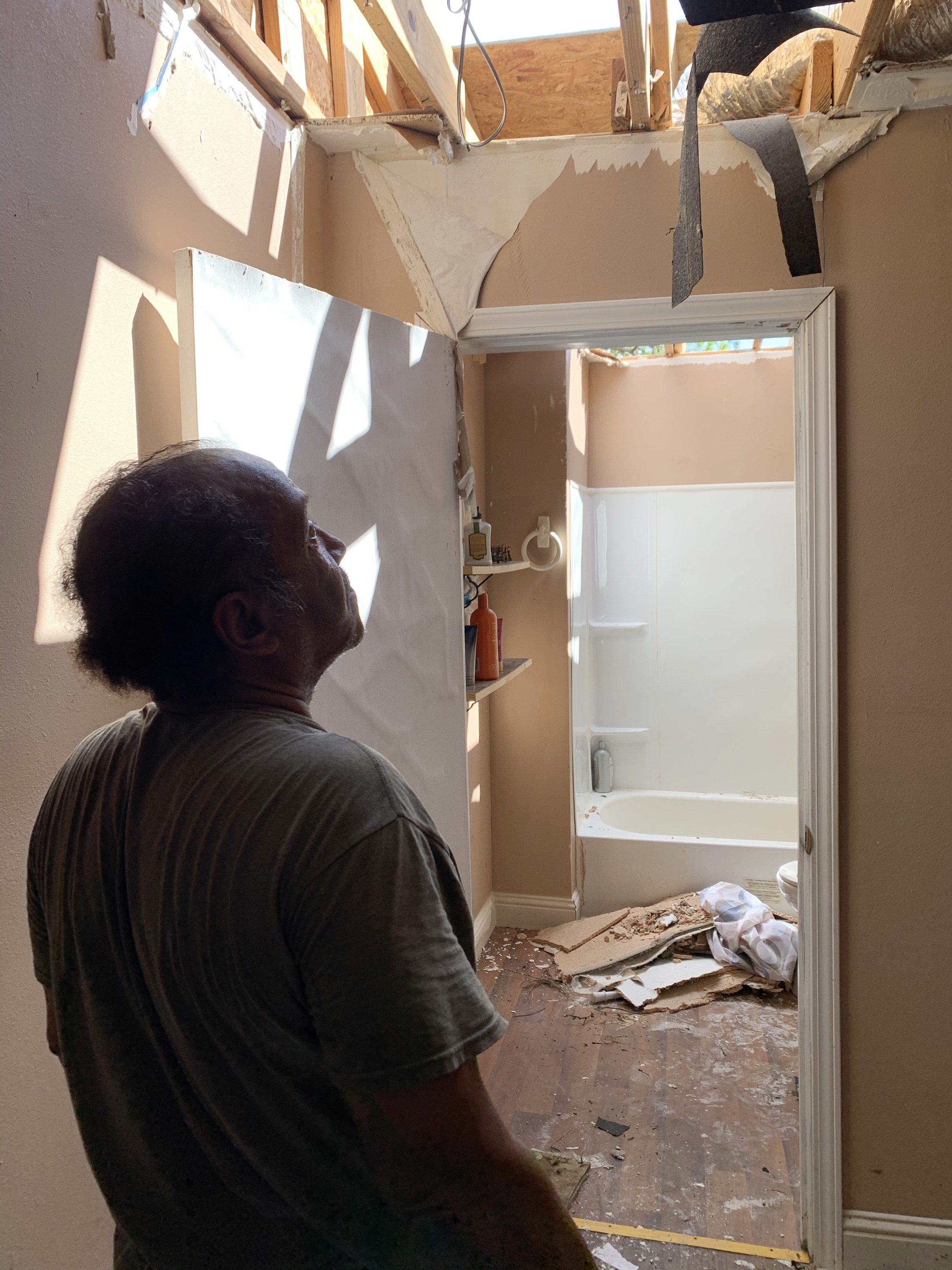
Adolfo Flores for BuzzFeed News
Gary Citizen, 60, looks at the part of his roof Hurricane Laura tore off, exposing a bathroom and bedroom to the elements.
"Don’t say you don’t know,” Ramona’s son, Anthony Talley, told his uncle. “It’s because this is a majority Black neighborhood. They don’t care about us here, not on the north side.”
Citizen nodded but didn’t say anything more.
Katie Harrington, a spokesperson for the city of Lake Charles, said officials have been on the ground and driving on every street to check on residents. The National Guard and Office of the State Fire Marshal have also gone door-to-door, conducting wellness checks. Lake Charles has also worked with organizations like the Red Cross to set up feeding and food distribution sites with a specific focus on the north part of the city, Harrington said.
"Our recovery efforts will only be successful if we recover as one city," Harrington said. “We will continue to focus our efforts on ensuring all residents have access to the many resources available in the coming days, weeks and months ahead.”
Back across town, Centeno finally decided that she had to get out too. For two days, she and her daughter had been hunkered down in the remnants of her home. She stayed up nights, fanning her daughter and trying not to break down. Her mind, she said, kept returning to the moment when she and her daughter, the storm raging around them, pushed the mattress against the window with all their might, her daughter crying and telling her they were going to die.
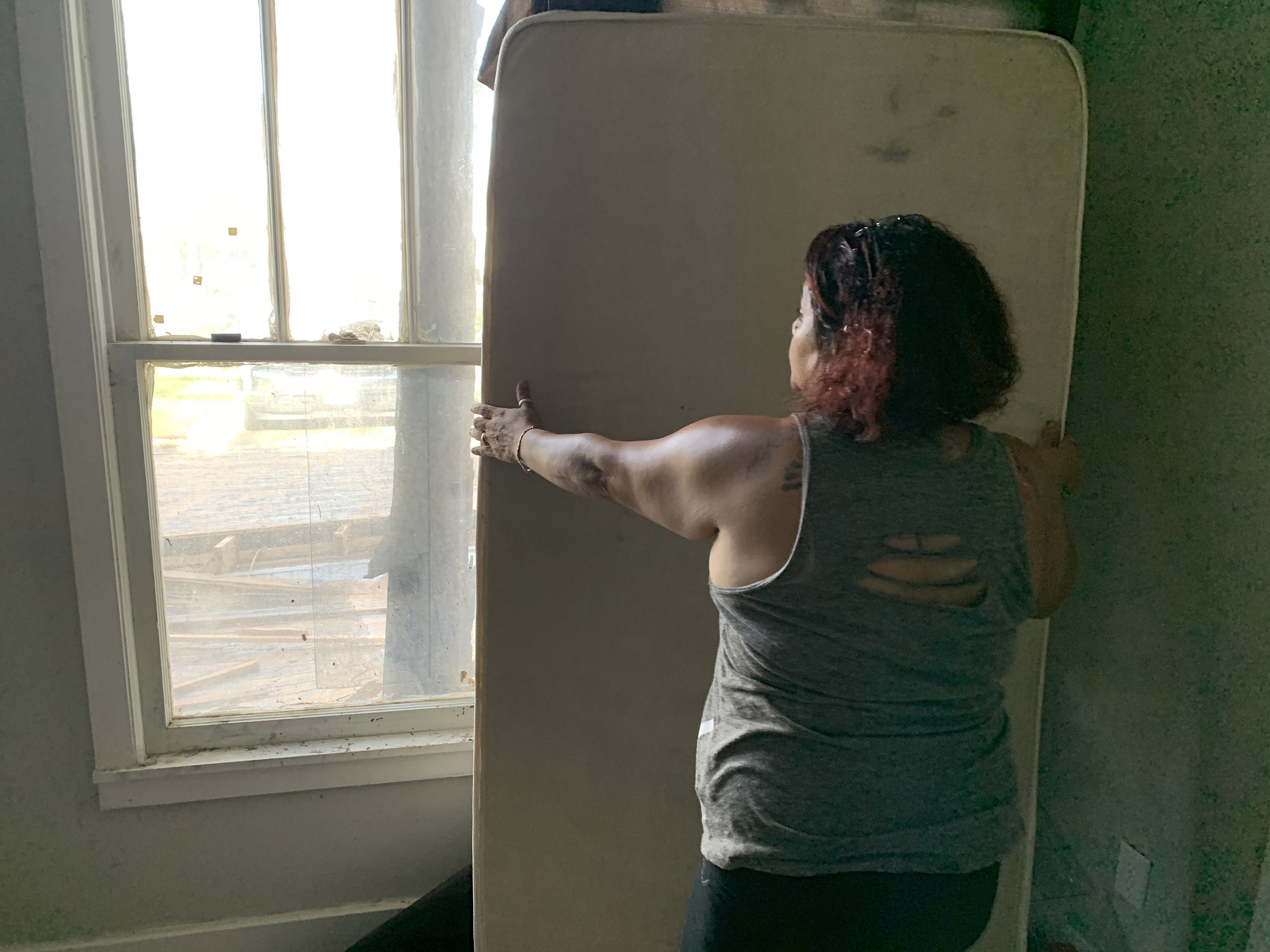
Adolfo Flores for BuzzFeed News
Yamileth Centeno, 52, holds up the mattress she and her daughter used to cover a broken window at the height of the storm.